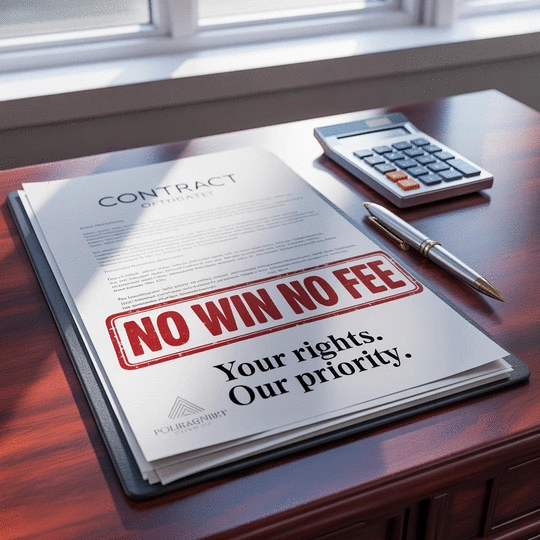Tenant Rights for Plumbing Issues
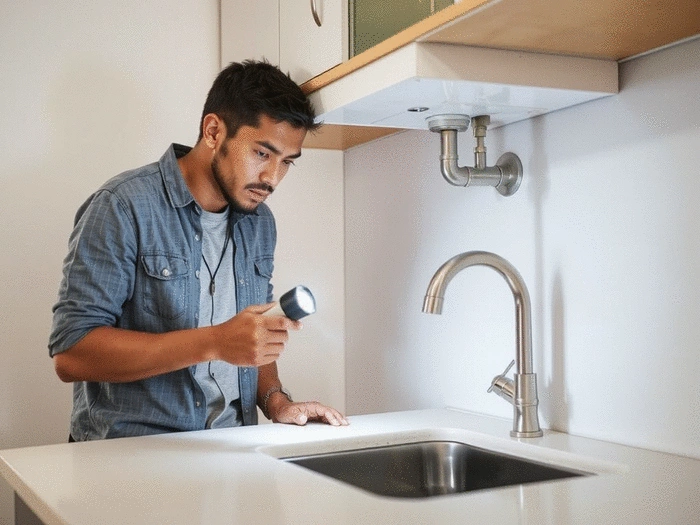
Posted on: 2025-10-14
By: Sarah Thompson
Have you ever found yourself in a plumbing crisis, unsure of your rights as a tenant? Understanding these rights is essential for maintaining a safe and comfortable living environment. Here’s what you need to know!
What You Will Learn
- What qualifies as a plumbing issue in rental properties, including leaks and clogs.
- Common types of leaks and their potential impact on your living conditions.
- The significance of local building codes and your landlord's obligations to comply.
- Effective communication strategies to foster a positive relationship with your landlord.
- Your rights as a tenant regarding timely repairs and support from advocacy groups.
- Next steps for seeking legal assistance if your landlord fails to address plumbing concerns.
Tenant Rights and Plumbing Issues Overview
Understanding tenant rights regarding plumbing issues helps ensure a safe and habitable living environment. Below are key points and comparisons on plumbing issues, their types, and the rights of tenants. For a deeper dive into how to address landlord negligence, consider understanding housing disrepair claims.
Types of Plumbing Issues
- Leaks from pipes, faucets, or toilets
- Clogged drains
- Low water pressure
- Malfunctioning water heaters
Tenant Rights
- Right to a safe living environment
- Right to timely repairs
- Right to seek assistance from advocacy groups
Common Leak Types
- Bathroom leaks
- Kitchen leaks
- Basement leaks
Impact of Plumbing Issues
Failure to repair can lead to:
- Mold growth
- Structural damage
- Increased repair costs
Understanding Your Rights as a Tenant in Case of Leaks and Plumbing Issues
As a tenant, it’s vital to understand your rights when it comes to plumbing issues in your rental property. Leaks and other plumbing problems can significantly impact your living conditions, and knowing what constitutes a plumbing issue can help you navigate your rights effectively. At Solicitors No Win No Fee, we aim to simplify these legal complexities, making sure you have the information you need to feel empowered in these situations.
Whether you're dealing with a minor leak or a major plumbing disaster, being informed is your best defense. Let’s explore what you need to know!
What Constitutes a Plumbing Issue in Rental Properties?
In rental properties, a plumbing issue encompasses a wide range of problems. Here are some examples:
- Leaks from pipes, faucets, or toilets that can lead to water damage.
- Clogged drains that disrupt daily activities and can cause overflow.
- Low water pressure, which affects water availability for tenants.
- Malfunctioning water heaters that can leave you without hot water.
Understanding these common issues can help you identify problems quickly and address them with your landlord. If left unaddressed, even minor plumbing issues can escalate into significant damage, impacting your comfort and safety.
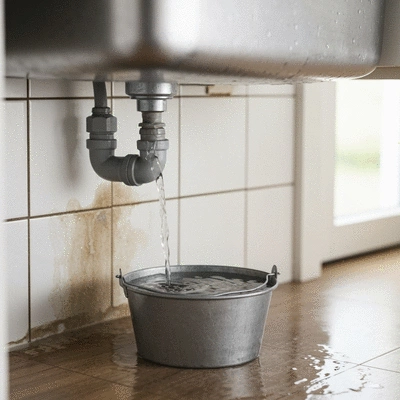
Recognizing Common Types of Leaks and Their Impact on Tenant Living Conditions
Leaks can vary in severity, but all can have serious implications for your living conditions. Here are the most common types of leaks you might encounter:
- Bathroom leaks: Often caused by faulty toilets or sinks, can lead to mold and structural damage.
- Kitchen leaks: Frequently arise from dishwashers or sinks, posing risks of water damage to cabinetry.
- Basement leaks: Can lead to flooding and significant damage, especially during heavy rains.
Recognizing these types of leaks early can help you communicate more effectively with your landlord. It’s crucial to report any issues as soon as you notice them to prevent further damage and maintain your right to a safe living environment. For more information on what landlords are responsible for, see our guide on landlord responsibilities for property repairs.
The Role of Local Building Codes in Defining Plumbing Issues
Local building codes play a significant role in defining what constitutes a plumbing issue. These codes set the standards for plumbing systems in rental properties, ensuring tenants have access to safe and functional water systems. Here are some key points:
- Building codes dictate minimum standards for plumbing installations.
- Landlords are legally required to comply with these codes to ensure tenant safety.
- Failure to meet these standards can result in legal consequences for the landlord.
As a tenant, being aware of these regulations not only helps you understand when to report issues but also empowers you to advocate for your rights. If you suspect that your landlord isn’t complying with local building codes, it may be time to seek legal advice.
Pro Tip
When reporting plumbing issues to your landlord, consider taking photos of the problem. Visual documentation can strengthen your case and provide clear evidence of the issue, making it harder for the landlord to dismiss your concerns. Additionally, keep a log of all communications regarding the issue for your records.
Effective Tenant-Landlord Communication Strategies
When facing plumbing issues, effective communication with your landlord is crucial. Clear dialogue can help resolve maintenance problems faster and foster a cooperative relationship. After all, a good connection with your landlord can lead to quicker responses when issues arise. So, let’s explore how to make this happen!
Building a positive relationship involves more than just reporting problems; it also includes understanding how to communicate effectively. Here are some strategies to help you engage constructively with your landlord:
Building a Cooperative Relationship for Maintenance Issues
Having a proactive stance can work wonders in getting your landlord to address plumbing issues promptly. Start by keeping your communication professional and respectful. Remember, your goal is to collaborate for a solution. Try following these tips to enhance your communication:
- Use clear and concise language when describing the issue.
- Keep records of all communications, including emails and texts.
- Be specific about what needs to be addressed and suggest a timeframe for repairs.
- Express appreciation for any past efforts made by your landlord.
By following these practices, you can create an atmosphere of mutual respect. This approach not only helps in getting your issues resolved but also builds a foundation for future interactions. As I always tell my clients at Solicitors No Win No Fee, the way you communicate can make all the difference!
Tips for Clear and Constructive Communication
To ensure your messages are clear, consider these additional tips:
- Start with a friendly greeting to set a positive tone.
- Describe the plumbing issue thoroughly, including when it started and any attempts you've made to fix it.
- Ask for a confirmation of receipt to ensure your request has been noted.
- Follow up if you haven't received a response within a reasonable timeframe.
These practices not only facilitate effective communication but also demonstrate your seriousness about the issue at hand.

Utilizing Tenant Advocacy Groups for Support in Communication
If challenges arise in communicating with your landlord, don't hesitate to seek help from tenant advocacy groups. These organizations specialize in helping tenants navigate their rights and responsibilities, and they can offer valuable assistance in fostering communication. Here are a few benefits of engaging with these groups:
- Access to knowledgeable advocates who can guide your conversations.
- Resources for understanding your rights in specific situations.
- Support in drafting letters or emails to your landlord.
By seeking support, you empower yourself and can approach your landlord with confidence. Remember, you are not alone in this process—help is available!
Summary of Your Rights and Actions to Take
Understanding your rights and the necessary actions related to plumbing issues is essential. We’ve covered a lot, so let’s recap some key points.
Recap of Key Rights and Responsibilities Regarding Leaks and Plumbing Issues
As a tenant, you have the right to:
- A safe and habitable living environment.
- Timely repairs for plumbing issues reported to your landlord.
- Seek assistance from tenant advocacy groups if communication fails.
Your responsibilities include notifying your landlord of any issues promptly and maintaining open lines of communication. By understanding these rights and responsibilities, you can navigate your living situation with greater ease.
Next Steps: Seeking Legal Assistance or Resources
If your landlord is unresponsive or fails to address your plumbing concerns, it may be time to seek legal assistance. Knowing where to turn for help can make all the difference! For situations where a landlord's inaction leads to significant issues, understanding proving your housing disrepair claim can be invaluable.
Where to Find Additional Help and Support, Including Legal Aid Services
Consider reaching out to the following resources:
- Local tenant advocacy organizations for guidance and support.
- Legal aid services that offer free or low-cost legal advice.
- Your local council’s housing department for information on tenant rights.
These resources can provide the additional support you may need to address plumbing issues and ensure your rights are protected. Remember, at Solicitors No Win No Fee, we’re dedicated to helping individuals like you understand your rights and navigate the legal landscape with confidence!
Recap of Key Points
Here is a quick recap of the important points discussed in the article:
- As a tenant, you have the right to a safe and habitable living environment, including timely repairs for plumbing issues.
- Common plumbing issues include leaks, clogged drains, low water pressure, and malfunctioning water heaters, which should be reported promptly.
- Effective communication with your landlord is crucial; use clear, concise language and keep records of all interactions.
- If communication fails, seek help from tenant advocacy groups for support in navigating your rights.
- Understanding local building codes can empower you to advocate for your rights as a tenant regarding plumbing issues.
Frequently Asked Questions About Tenant Plumbing Rights
Q1: What constitutes a plumbing issue in a rental property that my landlord is responsible for?
A1: Plumbing issues that your landlord is typically responsible for include leaks from pipes, faucets, or toilets; clogged drains that disrupt daily activities; low water pressure affecting water availability; and malfunctioning water heaters that leave you without hot water. These issues generally impact the habitability and safety of your living environment.
Q2: How quickly should my landlord address a plumbing issue?
A2: Landlords are generally required to address plumbing issues in a timely manner. The exact timeframe can depend on the severity of the issue and local housing laws. Urgent issues like significant leaks or lack of hot water usually require quicker attention than minor inconveniences. Always report issues promptly and keep a record of your communication.
Q3: What should I do if my landlord does not respond to my plumbing repair requests?
A3: If your landlord is unresponsive, first ensure you have documented all your attempts to communicate (dates, times, methods). You can then send a formal written notice, often a "repair and deduct" notice (where legally permissible), or contact local tenant advocacy groups and legal aid services for assistance. They can help you understand your rights and potential next steps, including seeking legal action.
Q4: Can I withhold rent if my landlord doesn't fix a plumbing problem?
A4: Withholding rent can be risky and is often only legally permissible under specific circumstances, depending on your local laws. In many jurisdictions, you must follow a strict legal process, such as sending written notices and allowing the landlord a reasonable time to repair, before you can consider options like "repair and deduct" or rent escrow. It's highly advisable to seek legal advice before withholding rent to avoid potential eviction or other legal repercussions.
Q5: How can local building codes help me with plumbing issues in my rental?
A5: Local building codes establish minimum standards for plumbing systems in rental properties, ensuring they are safe and functional. If your rental property's plumbing issues violate these codes, your landlord is legally obligated to rectify them. Knowing these codes can empower you to advocate for your rights and can serve as strong evidence if you need to seek legal assistance for non-compliance.
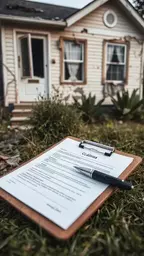 Did you know that many tenants are unaware of their rights regarding housing disrepair? Understandin
Did you know that many tenants are unaware of their rights regarding housing disrepair? Understandin
 In today's uncertain job market, knowing your rights when it comes to termination is more crucial th
In today's uncertain job market, knowing your rights when it comes to termination is more crucial th
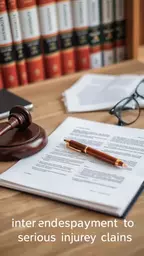 In the world of serious injury claims, navigating financial challenges can be daunting. Interim paym
In the world of serious injury claims, navigating financial challenges can be daunting. Interim paym
